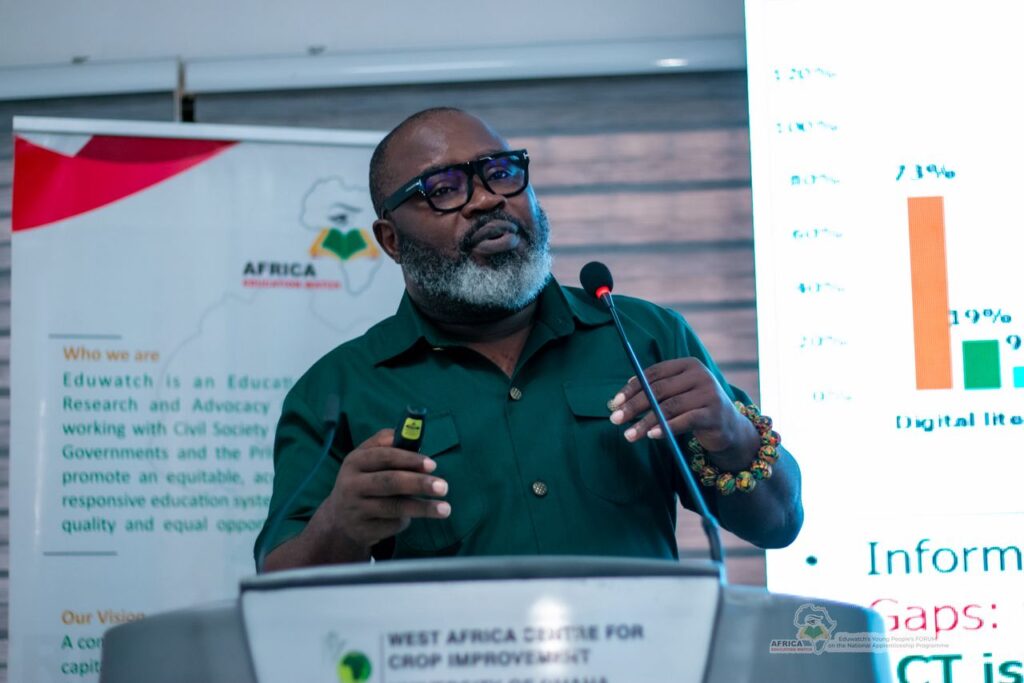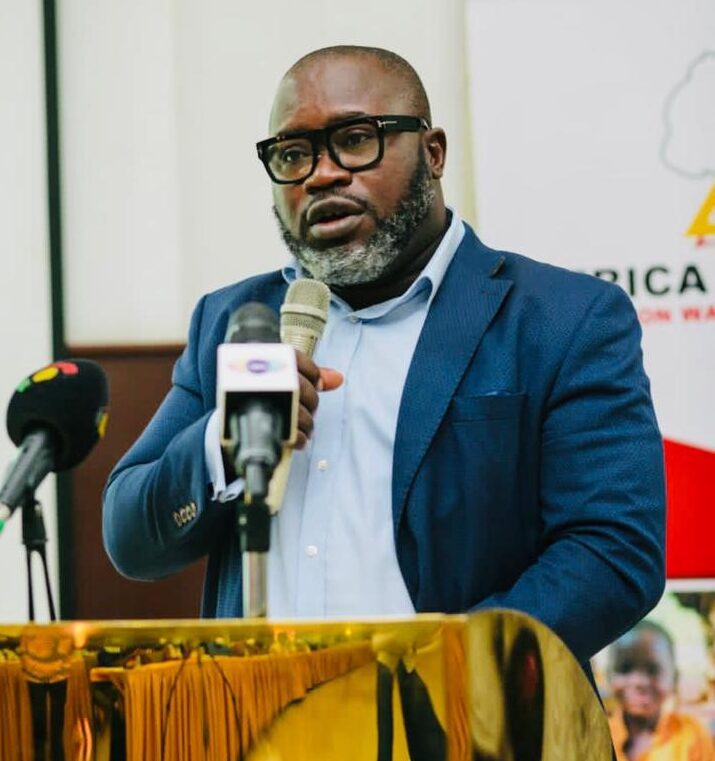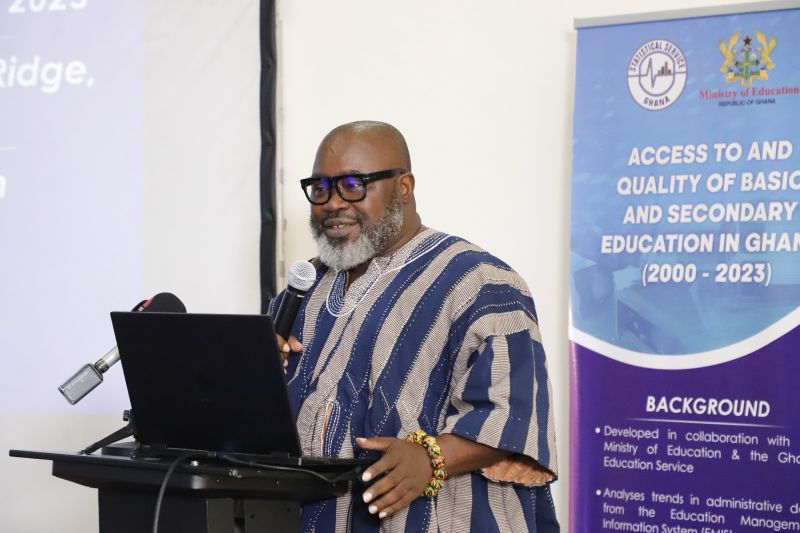The Executive Director of Africa Education Watch (Eduwatch), Kofi Asare, has expressed grave concern over what he described as a disturbing resurgence of examination malpractice in this year’s Basic Education Certificate Examination (BECE), warning that the trend, if unchecked, could undermine the integrity of Ghana’s education system.
According to him, a careful four-year review of provisional BECE results released by the West African Examinations Council (WAEC) reveals that the 2025 examination recorded the highest rate of malpractice in nearly a decade.
He explained that while the Council had made some progress in curbing the menace over the past few years, the latest figures point to systemic weaknesses that require urgent intervention.
Presenting Eduwatch’s analysis, Mr. Asare disclosed that between 2022 and 2024, the number of cancelled results, though worrying, followed a general downward trend—from 489 candidates in 2022 to 418 in 2024. However, in 2025, cancellations more than doubled to 895.

He added that the withheld results presented an even more alarming situation. From only 49 candidates in 2022, the figure surged dramatically to 1,333 in 2025. This, he said, represents an almost 3,900 per cent increase within a short period, despite candidate numbers growing by only 5 per cent between 2024 and 2025.
“The evidence suggests that while earlier control measures managed to keep malpractice cases in check for a period, the current spike exposes persistent systemic loopholes that allow the practice to rebound sharply. It may also indicate that WAEC has become more efficient in detecting malpractice.”
Executive Director of Africa Education Watch (Eduwatch), Kofi Asare
He explained that these numbers are not mere statistics but a reflection of the urgent need for stakeholders in education to act decisively. “If we fail to address this growing menace, we risk eroding public confidence in the credibility of our examinations, which are meant to serve as a fair measure of learning outcomes,” he cautioned.
Key Recommendations
Eduwatch has, in light of the findings, presented a memo to the Ministry of Education (MoE) and the Ghana Education Service (GES), outlining specific recommendations to tackle the issue. Central to these recommendations is the need for sustained enforcement and school-level accountability.
Kofi Asare argued that both private and public schools must be held directly accountable for malpractices involving their students, as this will deter complicity and negligence at the institutional level.
He further urged stronger collaboration among key agencies, including the Ministry fo Education, the Ghana Education Service, the National Schools Inspectorate Authority (NaSIA), and WAEC.

According to him, the four institutions must coordinate more closely to ensure strict adherence to examination protocols and hold school heads accountable for malpractice under their watch.
“Without such concerted collaboration, Ghana risks repeating the worrying picture we have seen in the 2025 BECE when the WASSCE is conducted later this year”.
Executive Director of Africa Education Watch (Eduwatch), Kofi Asare
Sanctions and Prosecution
Beyond institutional accountability, Eduwatch insisted that individuals complicit in examination fraud must face sanctions or prosecution. Kofi Asare highlighted that malpractice often thrives because of the involvement or negligence of officials whose duty is to protect the integrity of the exams. These include staff of the GES, private school administrators, WAEC officials, and security personnel.
“For us to make meaningful progress, there must be consequences. Where staff of GES, private schools, WAEC, or security agencies are found culpable, sanctions or prosecutions must follow, and the outcomes of these processes must be made public”.
Executive Director of Africa Education Watch (Eduwatch), Kofi Asare
Kofi Asare reiterated that combating examination malpractice is not only about punitive measures but also about safeguarding the nation’s educational foundations.
He explained that examinations such as the BECE and WASSCE are critical gateways that determine future academic and professional opportunities for millions of Ghanaian students.
As such, their credibility must not be compromised by practices that advantage some candidates unfairly while punishing those who play by the rules.
He also noted that while WAEC’s improved efficiency in detecting malpractice should be commended, it is equally important for policymakers and regulators to address the root causes.

These, he argued, include poor supervision, inadequate enforcement of protocols, and the commercialization of examination support by unscrupulous actors.
Eduwatch’s call comes at a time when public confidence in Ghana’s examination system has faced repeated tests due to widespread concerns about cheating, leakage of examination papers, and collusion between students, teachers, and invigilators.
Mr. Asare maintained that restoring integrity requires not just short-term interventions but long-term systemic reforms backed by consistent political will.
READ ALSO: COCOBOD must Adapt, not Disappear — Finance Ministry Advisor Defends COCOBOD’s Existence






















